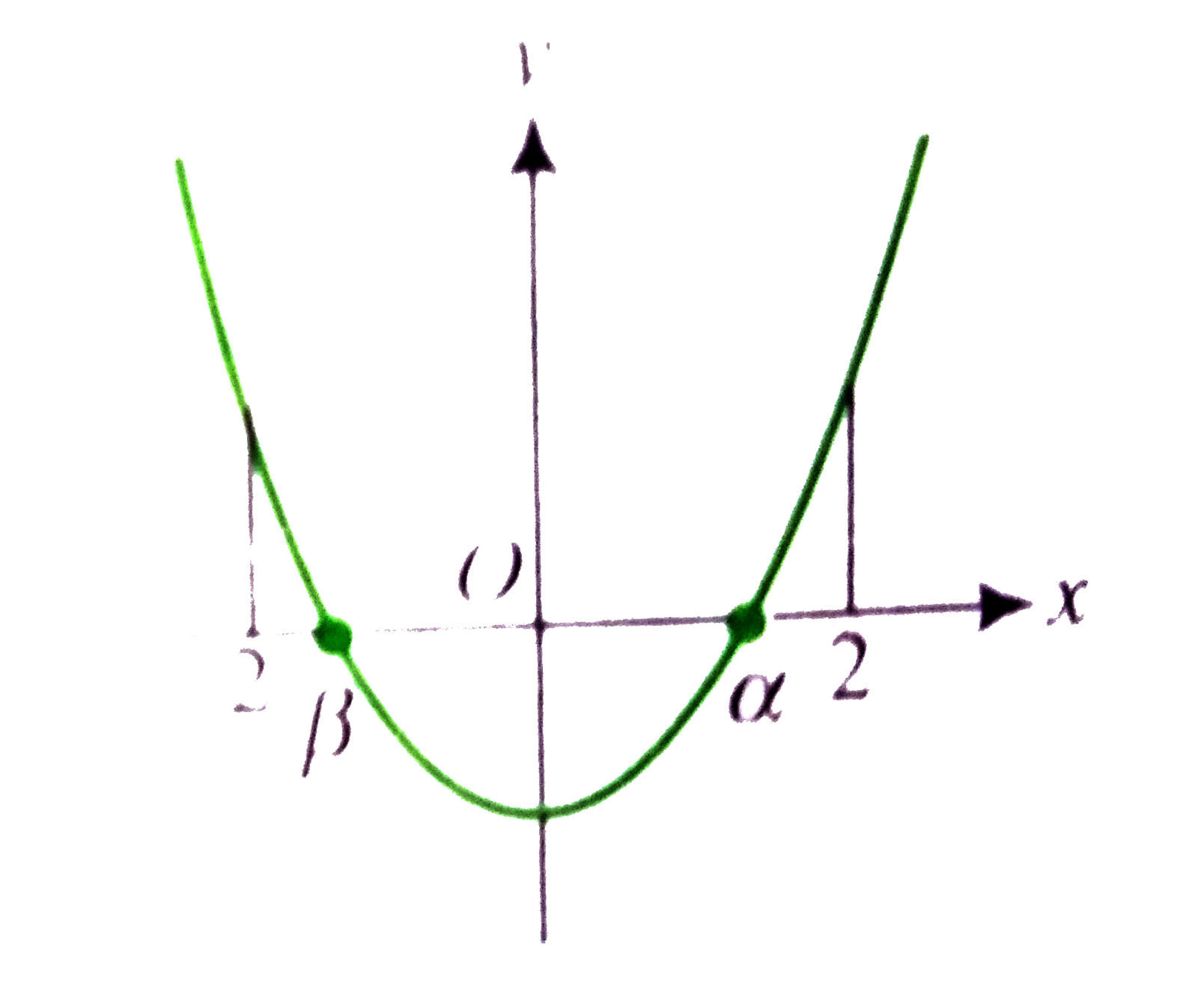Consider a quadratic equation ax2+bx+c=0 having roots α,β. If 4a+2b+c>0,a−b+c<0and4a−2b+C>0 then |[α]+[β]| can be {where [] is greatest integer}
−2
−1
0
1
The correct Answer is:1,2,3
Form the given conditions we have following possible graph of y=f(x) Form the graph.
[α]=0or1,[β]=−2or−1
∴[α]+[β] can be −1,0,−2

Topper's Solved these Questions
- BOOK - CENGAGECHAPTER - THEORY OF EQUATIONSEXERCISE - Exercise (Comprehension)37videos
THEORY OF EQUATIONS
- BOOK - CENGAGECHAPTER - THEORY OF EQUATIONSEXERCISE - Exercise (Matrix)6videos
THEORY OF EQUATIONS
- BOOK - CENGAGECHAPTER - THEORY OF EQUATIONSEXERCISE - Exercise (Single)89videos
THEORY OF EQUATIONS
- BOOK - CENGAGECHAPTER - STRAIGHT LINESEXERCISE - JEE Advanced Previous Year4videos
STRAIGHT LINES
- BOOK - CENGAGECHAPTER - THREE DIMENSIONAL GEOMETRYEXERCISE - Question Bank20videos
THREE DIMENSIONAL GEOMETRY
Similar Questions
Consider a quadratic equation ax2+bx+c=0 having roots α,β. If 4a+2b+c>0,a−b+c<0and4a−2b+C>0 then |[α]+[β]| can be {where [] is greatest integer}
View SolutionIf αandβ are roots of the quadratic equation ax2+bx+c=0 and a+b+c>0,a−b+c>0&c<0,then[α]+[β] is equal to (where [.] denotes the greatest integer function) 10 b. −3 c. −1 d. 0
View Solution
Knowledge Check
- Question 1 - Select One
Let a, b, c ∈ R and α,β are the real roots of the equation ax2 + bx + c = 0 and if a + b + c < 0, a – b + c < 0 and c > 0 then [α]+[β] is equal to (where [.] denotes the greatest integer function.)
A0B1C−1DNone - Question 2 - Select One
If the roots of a quadratic equation ax2+bx+c=0 are αandβ then the quadratic equation having roots α2andβ2 is :
Ax2−(b2−2ac)x+c=0Ba2x2−(b2−2ac)x+c=0Cax2−(b2−2ac)x+c2=0Da2x2−(b2−2ac)x+c2=0 - Question 3 - Select One
Let a,b,cεR and α,β, are the real roots of the equation ax2+bx+c=0 and in a+b+c<0,a−b+c<0 andc>0 then [α]+[β] is equal to (where[.] denotes the greatest integer function).
A0B1C-1DNone of these
If α,β are the roots of the quadratic equation ax2+bx+c=0 then αβ=
View SolutionIf α,β are the roots of the equation ax2+bx+c=0, a≠0 then α+β=
View SolutionIf α and β are the roots of the , quadratic equation ,ax2+bx+c=0 ,with α<β ,then for x<α (or) x>β, ax2+bx+c and a have ,
(A) Opposite sign
(B) Positive sign
(C) same sign
(D) none of theseView SolutionIf 0<a<b<cand the roots α,β of the equation ax2+bx+c=0 are imaginary, then
View SolutionIf α and β are the roots of the equation ax2+bx+c=0,αβ=3 and a,b,c are in AP, then α+β is equal to
View Solution

